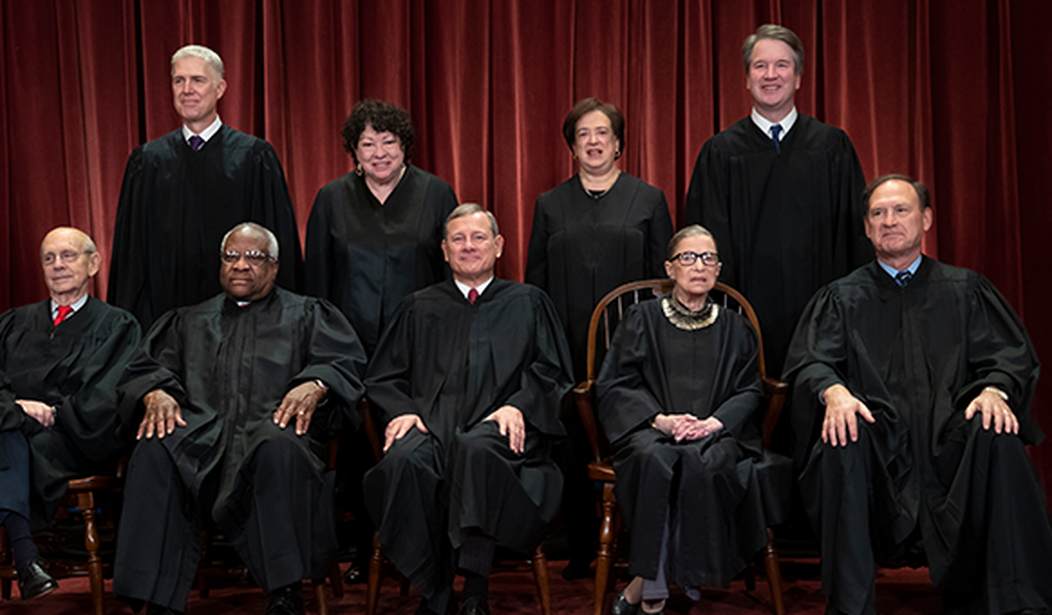Old English law, transported to the United States centuries ago, holds that “a man’s home is his castle” and may be protected against unwanted entry except in limited circumstances. The Supreme Court of the United States has now taken under advisement a case from Rhode Island that could significantly weaken that protection.
The Fourth Amendment to our Constitution enshrines the “castle doctrine” as it relates to one’s home, by requiring the police to obtain a warrant before they may lawfully enter that domicile and seize evidence. There are, of course, exceptions to this warrant requirement, and the Rhode Island case, on which the Supreme Court heard arguments just this week, is but the latest in a continuing effort by state police agencies to expand those warrant exceptions.
As with most every case that finds its way to the High Court, this latest one (the facts of which actually occurred six years ago, in August 2015) presents a reasonable, if not persuasive argument for the government -- at least on the surface. The local police were called by the wife of the homeowner, one Edward Caniglia, because she was concerned that, following an argument the previous day, he might harm her or himself with one of the two handguns he owned lawfully and kept in their home.
The police came and reportedly told Caniglia they would confiscate his firearms unless he agreed to be taken to a local hospital for a mental evaluation. Based apparently on the officers’ pressure, Mr. Caniglia was transported to a hospital for such an evaluation, which concluded he did not pose any threat. However, while he was away and being evaluated the police decided to enter his house without a warrant and confiscated his handguns and ammunition; refusing for months thereafter to return them.
Recommended
Lower federal courts upheld the legitimacy of the police actions, and Caniglia appealed to the Supreme Court. The issue before the nine Justices is whether police are justified in entering a home and seizing a homeowner’s lawfully possessed firearms without first securing a warrant establishing probable cause that such invasive action is necessary, even though, as in Caniglia’s case, the police had more than sufficient time to try and secure a warrant, and there was no evidence any crime had been committed.
The warrant exception on which Rhode Island is basing its case, is a narrowly drawn doctrine that previously had been allowed to permit police to conduct warrantless searches of vehicles in order to protect the public in a “caretaking” capacity after a traffic stop, for example, and not necessarily to look for evidence of a crime. Extending such a vague doctrine to a person’s home is a giant leap and brought together otherwise divergent groups including the ACLU and the American Conservative Union Foundation, which both filed briefs opposing Rhode Island’s broad assertion of warrantless search and seizure power.
This case predates the recent spate of so-called “Red Flag” laws adopted by several states that allow police or private parties to obtain court orders to confiscate a person’s firearms at least temporarily, based on testimony that the person poses an imminent threat of serious harm to themselves or others. However, Caniglia’s case highlights the problems inherent in such “anticipatory” seizures of lawfully owned firearms.
The case also may reveal whether former President Trump’s first two Supreme Court nominees – Neil Gorsuch and Bret Kavanaugh – will be willing to stake out a position in support of both the Fourth and Second Amendments. If so, they likely would join with Clarence Thomas, who has long urged his colleagues to stand up for both provisions in the Bill of Rights. The Court’s most recent Associate Justice, Amy Coney Barrett, has not yet participated in a such an important individual liberties case since joining the Court last year, but her record in support of Second Amendment rights is well-known. The fifth vote in such a majority likely would be Justice Sam Alito, who authored the 2010 McDonald opinion which held that the Second Amendment protects not a “collective” right but an individual right to keep and bear arms in all 50 states.
Without at least a five-vote majority, both the Fourth and Second Amendments will emerge far weaker than they are even now.
























Join the conversation as a VIP Member